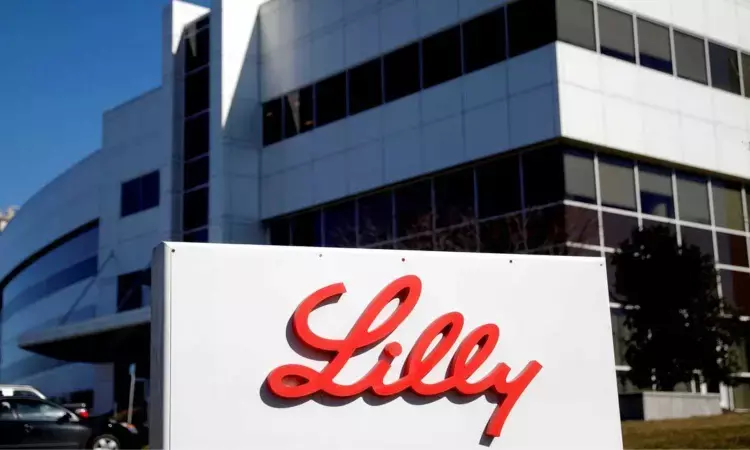- Home
- Medical news & Guidelines
- Anesthesiology
- Cardiology and CTVS
- Critical Care
- Dentistry
- Dermatology
- Diabetes and Endocrinology
- ENT
- Gastroenterology
- Medicine
- Nephrology
- Neurology
- Obstretics-Gynaecology
- Oncology
- Ophthalmology
- Orthopaedics
- Pediatrics-Neonatology
- Psychiatry
- Pulmonology
- Radiology
- Surgery
- Urology
- Laboratory Medicine
- Diet
- Nursing
- Paramedical
- Physiotherapy
- Health news
- Fact Check
- Bone Health Fact Check
- Brain Health Fact Check
- Cancer Related Fact Check
- Child Care Fact Check
- Dental and oral health fact check
- Diabetes and metabolic health fact check
- Diet and Nutrition Fact Check
- Eye and ENT Care Fact Check
- Fitness fact check
- Gut health fact check
- Heart health fact check
- Kidney health fact check
- Medical education fact check
- Men's health fact check
- Respiratory fact check
- Skin and hair care fact check
- Vaccine and Immunization fact check
- Women's health fact check
- AYUSH
- State News
- Andaman and Nicobar Islands
- Andhra Pradesh
- Arunachal Pradesh
- Assam
- Bihar
- Chandigarh
- Chattisgarh
- Dadra and Nagar Haveli
- Daman and Diu
- Delhi
- Goa
- Gujarat
- Haryana
- Himachal Pradesh
- Jammu & Kashmir
- Jharkhand
- Karnataka
- Kerala
- Ladakh
- Lakshadweep
- Madhya Pradesh
- Maharashtra
- Manipur
- Meghalaya
- Mizoram
- Nagaland
- Odisha
- Puducherry
- Punjab
- Rajasthan
- Sikkim
- Tamil Nadu
- Telangana
- Tripura
- Uttar Pradesh
- Uttrakhand
- West Bengal
- Medical Education
- Industry
Eli Lilly to cut insulin prices by 70 percent

The company will lower the price of Humalog, its most commonly prescribed insulin, and Humulin, by 70 percent starting in the fourth quarter of this year.
New York: US pharmaceutical giant Eli Lilly announced Wednesday it was cutting the cost of its most commonly prescribed insulins by 70 percent after years of soaring prices that hit millions of Americans living with diabetes.
The announcement comes as the cost of insulin has surged in recent years, with demand increasing significantly as well.
"Lilly is taking these actions to make it easier to access Lilly insulin and help Americans who may have difficulty navigating a complex healthcare system," the Indianapolis-based drugmaker said in a statement.
The company added it would cut the price of its non-branded insulin to $25 a vial starting May 1.
It will also lower the price of Humalog, its most commonly prescribed insulin, and Humulin, by 70 percent starting in the fourth quarter of this year.
"While the current healthcare system provides access to insulin for most people with diabetes, it still does not provide affordable insulin for everyone and that needs to change," said Lilly CEO David Ricks.
The company also said Wednesday it would automatically cap out-of-pocket costs at certain retail pharmacies at $35, for people with commercial insurance using Lilly insulin.
Diabetes is one of the fastest-growing chronic diseases globally, according to a 2022 study.
- Soaring prices - In recent decades, insulin prices have soared in the United States, costing over eight times more than in 32 comparable high-income countries, a 2020 Rand Corporation study found.
But the cost of producing insulin is relatively low compared to the sale price.
A survey by nonprofit T1International also showed that one in four respondents living with diabetes reported rationing their insulin because of the financial strain.
In his State of the Union address last month, President Joe Biden said: "Big Pharma has been unfairly charging people hundreds of dollars -- and making record profits. Not anymore.
While seniors on Medicare have the cost of insulin capped, millions of other Americans not on the federal health insurance program for the elderly need insulin to save their lives, he added.
"Let's finish the job this time. Let's cap the cost of insulin at $35 a month for every American who needs it," Biden said.
Diabetes is divided into two types. An estimated nine million people have type 1 diabetes, a chronic condition where the pancreas does not produce enough insulin -- the hormone that regulates blood sugar levels.
Most people living with diabetes have type 2, which is associated with obesity and other lifestyle factors and emerges in adults and increasingly among children.
All type 1 diabetics need insulin to survive, and generally their access is ensured.
Some 63 million people with type 2 also need the hormone, according to World Health Organization estimates, but only about half of them can access it.
Ruchika Sharma joined Medical Dialogue as an Correspondent for the Business Section in 2019. She covers all the updates in the Pharmaceutical field, Policy, Insurance, Business Healthcare, Medical News, Health News, Pharma News, Healthcare and Investment. She has completed her B.Com from Delhi University and then pursued postgraduation in M.Com. She can be contacted at editorial@medicaldialogues.in Contact no. 011-43720751
Next Story


